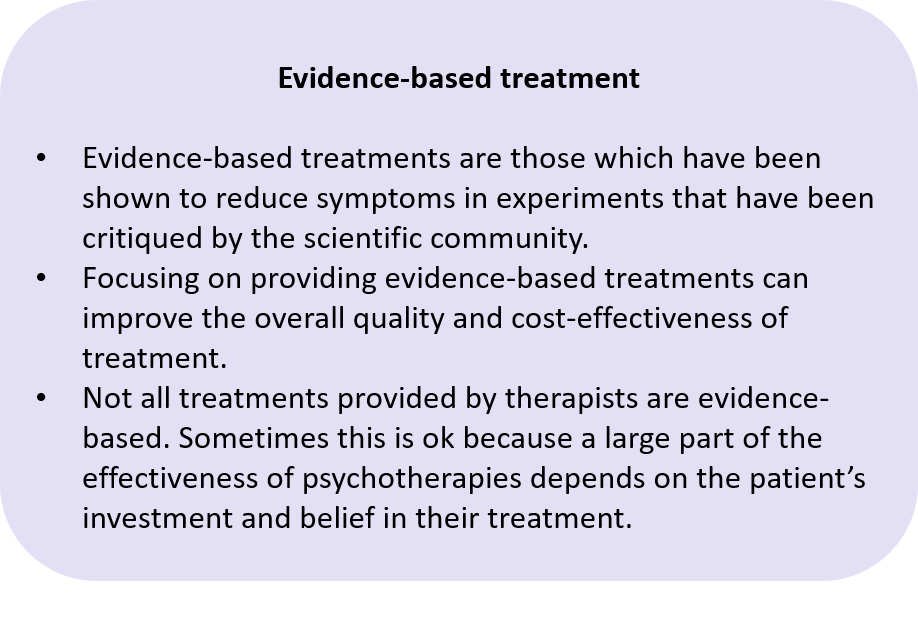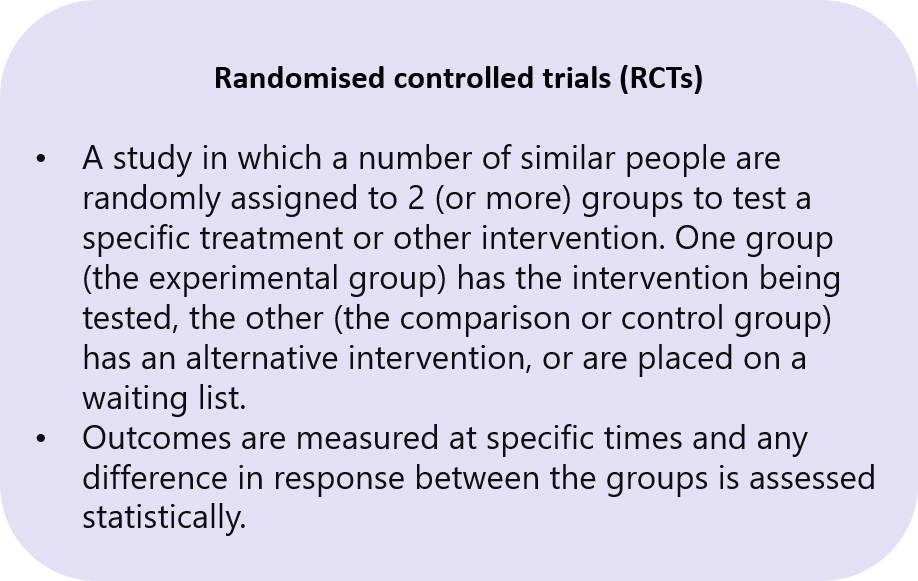What does the evidence say about adapting therapy for students?
By Blog editor, on 24 June 2021
Post by Phoebe Barnett, PhD student and Research Assistant. You can follow Phoebe on Twitter.
Reading time: ~3 mins

Clinicians delivering psychotherapeutic treatments to students may choose to adapt their interventions, to try and account for their unique context. In this post, Phoebe Barnett outlines the findings from her recent systemic review, which investigated whether current adaptations to treatments for students are working.
Student counselling services have reported considerable increases in the number of students accessing care. Alongside this, they report that their clients are presenting with more severe mental illnesses. While this is likely to be at least partly caused by widening access to university, recent reports have highlighted that student-specific concerns, such as academic pressure, financial distress, substance misuse and family upset are rising 1,2.
Many of the current psychological therapies delivered to students were originally designed for the general population, and may therefore miss important factors related to student distress. One possible way in which student mental healthcare could be improved is by designing specialised treatments for students; for example, by targeting the prevention of suicide and self-harm 3,4. As students are easy to recruit, previous research has often included them in their samples. However, the research rarely aims to establish what works best for them specifically. It is important to understand how to support mental health needs in this specific population, and how we can further adapt evidence-based treatment so students feel the support available to them is relevant to the difficulties they are facing.
I therefore systematically reviewed the evidence from randomised-controlled trials of psychological therapy conducted in student populations. In doing this I aimed to establish if a specific focus on adaptation would work better than generic approaches.


Our findings
In general, psychological treatments are effective in reducing students’ symptoms of depression, anxiety disorders and eating disorders. This result, although unsurprising, is important because depression and anxiety disorders are the most common in students. There is also overrepresentation of eating disorders in students, compared with non-students. Unfortunately, few investigations into treatments for PTSD in students have been conducted, and, despite recent reports of suicide rates in students increasing5,6, we did not find any studies which focussed on either self-harm or suicidal ideation.
Only a small number of studies, 13 out of 84, specifically adapted their intervention for students. When we compared studies looking at adapted and non-adapted treatments, adapted interventions did not lead to better outcomes or greater adherence to treatment. Those who received adapted treatments actually fared worse in most cases.

Those who received adapted interventions actually fared worse in most cases. Concerns about students dropping out would be better addressed with interventions focused on motivation, rather than reducing treatment length.

These results seemed counterintuitive at first, however when we looked into this in more detail, some of the adaptations did not fully encompass what students may need from mental health support. For example, a common assumption was that students lack the motivation to attend longer treatment programmes (although this point is disputed and contradicts some recent qualitative research I have conducted). Three studies sought to achieve better outcomes by reducing the treatment intensity: one delivered web-based sessions, one reduced the total number of sessions and the final study provided a single session of low-intensity treatment. But our review found no evidence that reducing treatment intensity in this way benefitted patients in terms of symptom reduction and treatment tolerability. It was not clear whether the shortening of previously evidence-based treatment models removed key “ingredients” which, in turn, hindered the effectiveness. We suggest that concerns about students dropping out would be better addressed by focussing on motivation, rather than potentially sacrificing important elements of therapy by reducing treatment length.
Positive effects were seen in two studies who provided more sessions alongside evidence-based adaptations, suggesting a potential avenue for further research.
Conclusion
In sum, psychological treatments can be beneficial for students, but so far they have not been fully optimised for them. There remains a lot of uncertainty over how we can provide interventions to students in a way that suits them best. A greater understanding of context-specific causes of mental health problems and distress could lead to more promising treatments for students.
References
- Doerr, J. M., Ditzen, B., Strahler, J., Linnemann, A., Ziemek, J., Skoluda, N., Nater, U. M. (2015). Reciprocal relationship between acute stress and acute fatigue in everyday life in a sample of university students. Biological Psychology, 110, 42–49.back
- Murray, A. L., McKenzie, K., Murray, K. R., & Richelieu, M. (2015). An analysis of the effectiveness of university counselling services. British Journal of Guidance & Counselling, 44, 1309139.back
- Gawrysiak, M., Nicholas, C., Hopko, D.R., 2009. Behavioral activation for moderately depressed university students: randomized controlled trial. Journal of Counseling Psychology 56 (3), 468-475back
- McIndoo, C., File, A., Preddy, T., Clark, C., Hopko, D., 2016. Mindfulness-based therapy and behavioral activation: A randomized controlled trial with depressed college students. Behaviour Research and Therapy, 77 118–128. https://doi.org/10.1016/j. brat.2015.12.012.back
- Horgan, A., Kelly, P., Goodwin, J., Behan, L., 2018. Depressive symptoms and suicidal ideation among Irish undergraduate college students. Issues in mental health nursing 39 (7), 575–584.back
- Read, J.P., Griffin, M.J., Wardell, J.D., Ouimette, P., 2014. Coping, PTSD symptoms, and alcohol involvement in trauma-exposed college students in the first three years of college. Psychology of addictive behaviours 28 (4), 1052. back
 Close
Close


